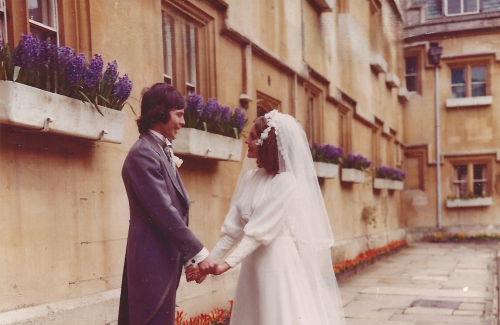More Pembroke news
Callaloo at 40 - Putting Blackness at the Centre of the Discussion
NEWS |
Callaloo is the leading journal of literature, art, and culture of the African Diaspora, which publishes original work by and about writers and visual artists of African descent worldwide. In the following article Elizabeth Oladunni, BA History and Politics (2015) reflects on her experience of the recent Callalloo Conference at Pembroke, which this year marked the 40th anniversary of the journal.
When Professor Stephen Tuck asked me and Zahraa Salloo to have lunch with the organisers of the Callaloo Conference, I did not know what to expect. In fact, I had never heard of Callaloo. A quick google search failed to adequately convey the wealth of knowledge, and sheer brilliance of the Callaloo project that I would soon encounter.
Meeting Charles Rowell, Howard Dodson and Carol Alexander for the first time was an unforgettable experience. Their personalities shone as discussion covered the Schomburg Center and Dodson’s work in bringing the library to life, the life of Samuel Johnson and Francis Barber, his black servant whom he named as his heir, the Smithsonian, and the Black Lives Matter movement.
I found the first event of the conference very inspiring. Hearing Margo Crawford, (Cornell University), Vievee Francis (Darthmouth College) and LeRonn Brooks (Lehmen College) speak about the significance of the occasion allowed me to understand that Callaloo had paved the way for many young black intellectuals, particularly those emerging from the South. It had allowed their voices to be heard when most journals in the South did not want to publish the work of black poets, or artists, or thinkers. It had nurtured a community of black voices since 1976, who wanted at this event to pay homage to the man at the centre of that movement, Charles Rowell. The sheer might and perseverance of Rowell can only be compared to the black greats, such as Booker T. Washington, Marcus Garvey, WEB Du Bois and Charles Rowell.
This conference affected me in a way that no other event at Oxford had done. I was in a room of intellectuals, who were black like me, and who were in each of their own fields pushing boundaries, and challenging cultural narratives. Janice Harrington’s poems on Horace Pippin left me educated and awed. Alongside mourning the strain and futility of the war with Wilfred Owen, I can mourn with the loss and confusion that Horace Pippin felt upon returning home from war. It was also an honour to have heard Gregory Pardlo, Putlizer prize-winner, reading his poem Wishing Well. There was a sense of connection between audience members, as they laughed together and at times were stirred to tears.
The Callaloo conference has challenged and inspired me. I feel honoured to have been a part of the experience, and I probably speak for most when I say: it was an honour to have had you here, Callaloo.

